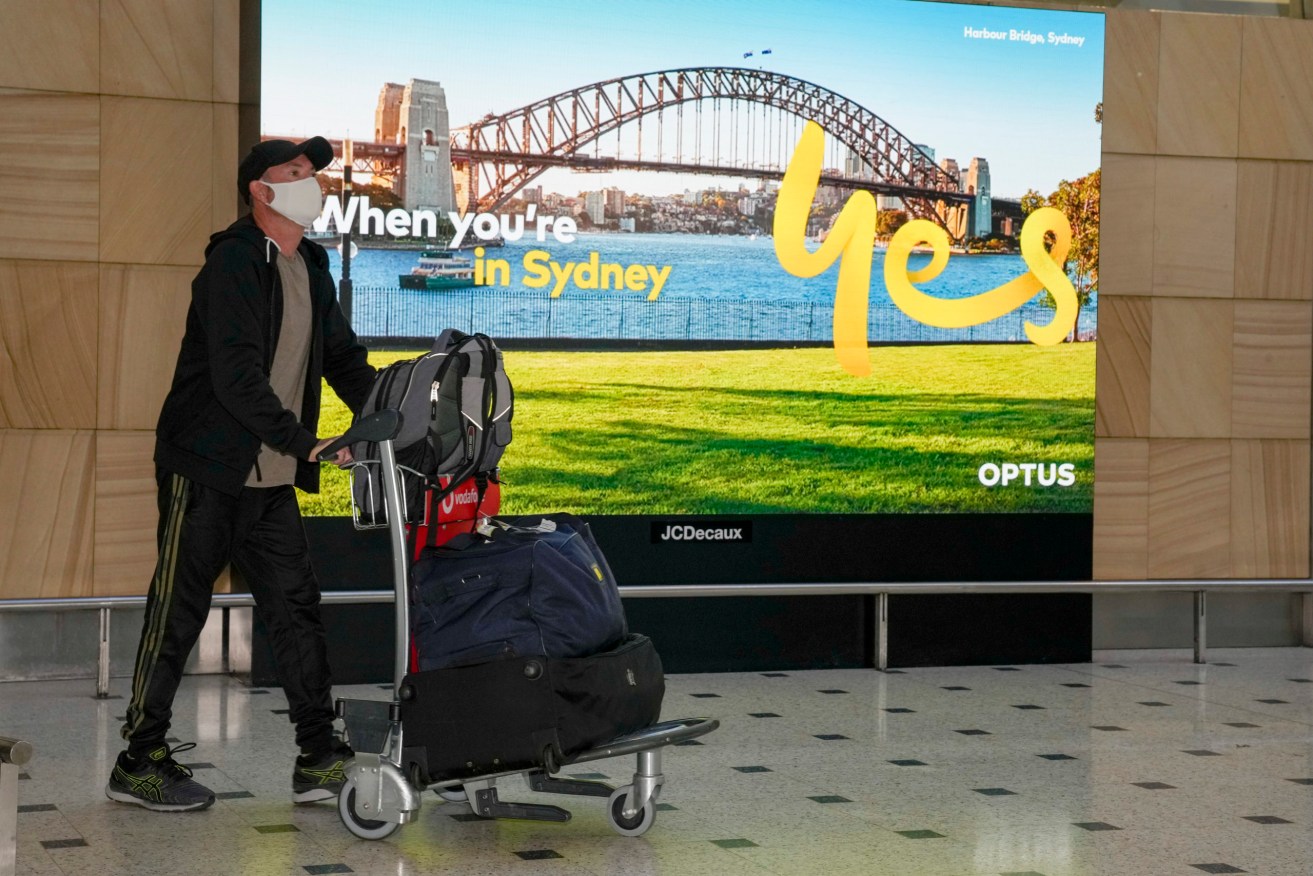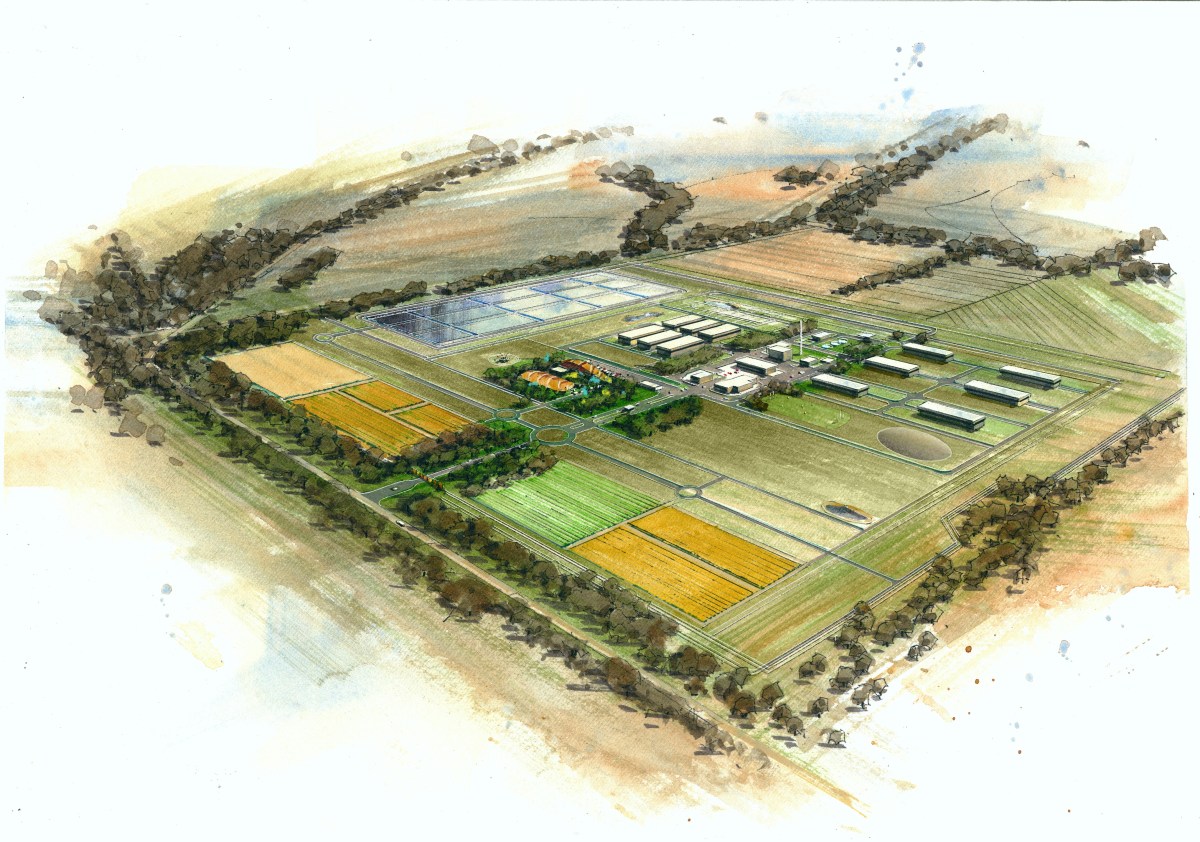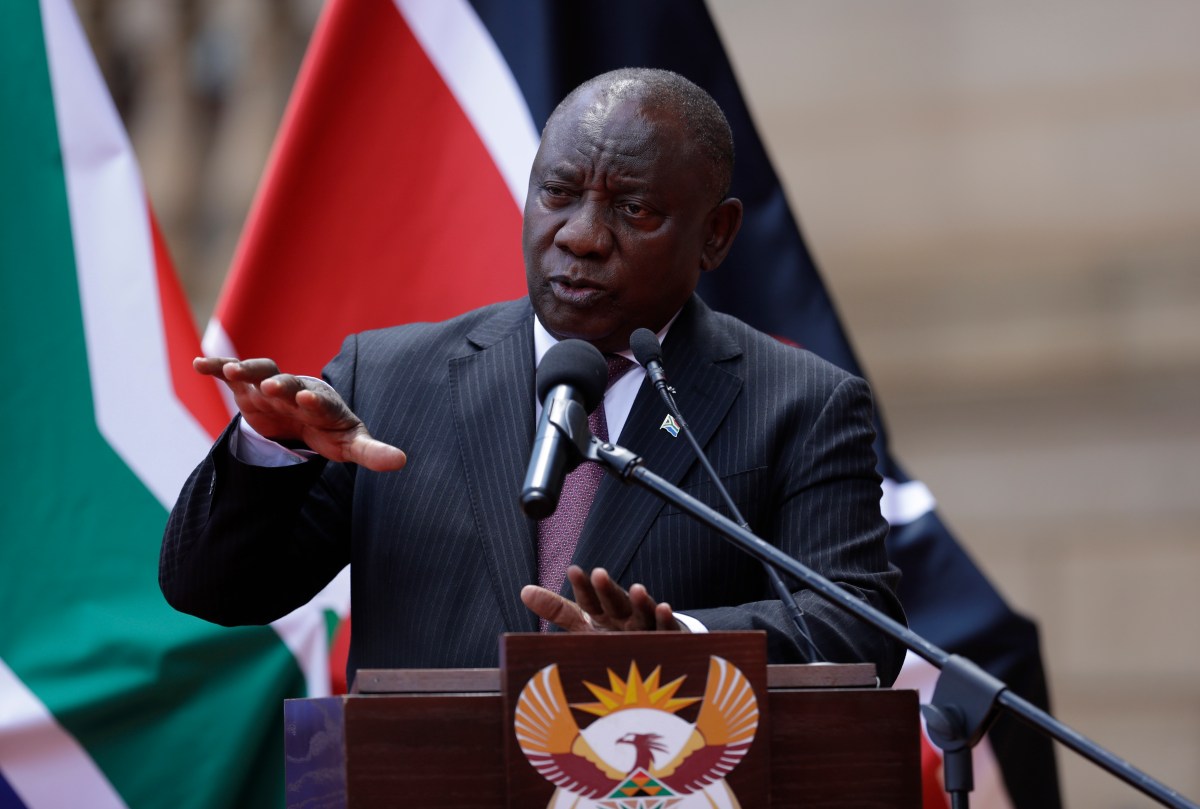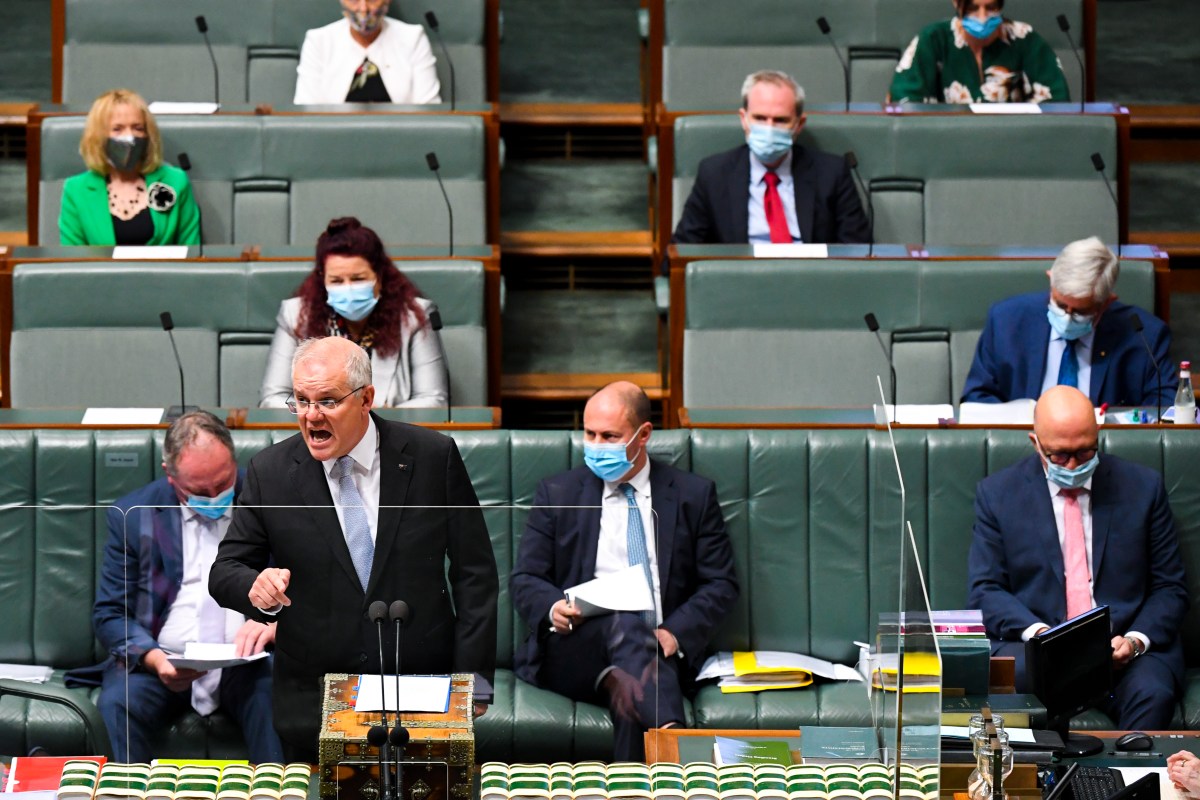What we know today, Monday November 29
South Australia has recorded one new COVID case, as Australia’s national security committee meets to look at whether the country can reopen to double-dosed visa holders, skilled workers and international students from Wednesday as scheduled, in the light of the new Omicron variant.

Passengers arrive at Sydney Airport on Monday. Photo: AP/Mark Baker
- SA records one new COVID case
- Omicron variant throws spanner in Australia’s reopening schedule
- ‘Bracing ourselves’: Omicron variant prompts changes to SA’s COVID roadmap
- Marshall laments ‘hugely impactful’ WA border closure
- Kimba confirmed for nuclear waste facility
- South African president slams ‘unjustified’ border closures
- PM seeks unity ahead of parliament’s final sitting week
- Carey stakes Ashes claim but Redbacks fall short
SA records one new case
South Australia recorded one new case of COVID-19 on Monday, according to SA Health.
The case is a woman in her 20s who acquired her infection interstate.
It brings the total number of interstate acquired cases in South Australia since the border reopened to nine, although authorities are yet to detect any instance of community transmission.
SA Health has also announced it will report the vaccination rate for residents aged 12 and over going forward, rather than the percentage of those 16 and over used previously.
On that measure, 79.1 per cent of South Australians aged 12 and over have gotten a double dose of a COVID vaccination, and 88.5 per cent have had a single dose.
Omicron variant throws spanner in Australia’s reopening schedule
Australia’s national security committee will meet on Monday afternoon to look at whether the country can reopen to double-dosed visa holders, skilled workers and international students from Wednesday as scheduled, in the light of the new Omicron variant.
A national cabinet meeting made up of federal, state and territory leaders is also expected on either Monday or Tuesday to consider Australia’s response.
Prime Minister Scott Morrison urged calm, with a third case of the Omicron strain suspected in NSW on Monday.
“There’s no evidence to suggest that this leads to any more severe disease,” he told the Nine Network.
“If anything, it’s suggesting a lesser form of disease, particularly for those who are vaccinated.
“Case numbers of themselves are not the issue. It’s about whether people are getting a worse illness or it’s going to put stress on your hospital system.”
Victoria, NSW and the ACT have introduced a blanket 72-hour quarantine requirement for all international travellers.
New arrivals from nine southern African countries that Australia has shut its border to must quarantine for 14 days.
Chief Medical Officer Paul Kelly said authorities were looking closely at what Omicron meant for viral transmission and the efficacy of vaccines.
“It does transmit from person-to-person quite readily, at least as well as the Delta virus. And so that means that it will spread,” he told ABC television.
“In terms of the vaccines, there is no solid evidence at the moment that there is a problem with that. Although we will wait for further advice and laboratory studies in coming days and weeks.”
The South African doctor who alerted authorities to the new variant emphasised the strain did not appear to cause severe illness.
A man in his 30s came to see Angelique Coetzee suffering from fatigue, body aches and pain before he and his family tested positive.
“None of them were extremely sick,” Dr Coetzee said.
Labor’s NDIS spokesman Bill Shorten said the Omicron strain highlighted the need for an effective quarantine system.
“I don’t think that 72 hours is enough. And if we don’t want to have more severe restrictions, then quarantine is our frontline of defence,” he told ABC TV.
Victoria on Monday reported 1007 new COVID-19 cases and three more deaths, while there were 150 additional infections in NSW.
There were seven in the ACT on Sunday and four in the Northern Territory where the remote community of Lajamanu is in lockdown until December 11.
Nearly 87 per cent of Australians aged 16 and older are fully vaccinated.
‘Bracing ourselves’: Omicron variant prompts changes to SA’s COVID roadmap
The arrival of the Omicron COVID-19 variant could throw elements of South Australia’s restrictions roadmap in doubt, with concern over the new strain already prompting changes to the state’s quarantine rules.
The new “variant of concern” – which, according to preliminary evidence, spreads faster than any current COVID-19 strain and has more than 30 mutations – arrived in Australia on Saturday, with two southern African travellers on a Doha to Sydney flight testing positive to the variant.
The fully vaccinated arrivals are in hotel quarantine with another 12 passengers from southern Africa, while the remaining 260 passengers and air crew on the Qatar Airways flight have been directed to isolate.
It comes after the federal government over the weekend shut Australia’s border to nine countries in southern Africa.
South Australian authorities on Saturday also moved to increase mandatory quarantine time for all fully vaccinated international arrivals from seven days to 14.
It comes only days after quarantine periods for overseas travellers in SA were cut from 14 days to seven on November 23.
Premier Steven Marshall said the latest change would give authorities time to understand the likely impact of Omicron.
“We are all bracing ourselves to find out exactly and precisely what the impacts of this new variant of concern are going to be,” Premier Steven Marshall told reporters on Sunday.
“We are concerned, but at this stage we are still trying to work out exactly and precisely what is going to occur from this new variant.
“We’ve moved very quickly to increase that quarantine arrangement for all international travellers into South Australia from seven days back up to 14 days while we fully evaluate the likely impact of this new variant of concerns.”
Under SA’s current roadmap, fully vaccinated international arrivals will be allowed to arrive in South Australia without having to quarantine once the state reaches 90 per cent fully vaccinated for over-12s.
Asked whether Omicron threatened to scrap this arrangement, Marshall said authorities would need “a few more weeks” to understand the variant.
“We need to understand how our current levels of vaccination will protect us, we also need to know what the symptoms are likely to be from this new variant,” he said.
“At the moment we know its highly transmissible, but we don’t have much more information beyond that.”
As of Saturday, 80.2 per cent of South Australians over the age of 16 are fully vaccinated, while 89 per cent have received at least one dose.
Marshall laments ‘hugely impactful’ WA border closure
Premier Steven Marshall has criticised Western Australia’s decision to shut its borders to South Australia as a “massive inconvenience” for travellers, amid fears other states could soon follow suit.
WA authorities on Saturday moved to reclassify South Australia from a “very low risk” to a “low risk” jurisdiction, meaning all SA arrivals in WA will have to self-quarantine for 14 days.
South Australia has recorded eight interstate acquired COVID-19 cases since opening its borders to the eastern states on November 23, although authorities are yet to detect any instance of community transmission.
WA Premier Mark McGowan said the move to shut the border was a “high precautionary measure”, citing the threat of the new Omicron variant.
“WA’s chief health officer advises the risk of transmission from South Australia into Western Australia is increasing,” he told reporters.
“Lots of people are coming in with cases into South Australia who are then being managed in a home quarantine arrangement.
“The prospect is the omicron variant could get into Adelaide and South Australia.
“It’s a highly precautionary measure, I realise it will be disruptive, it will be inconvenient for some families, but I’ve got to take account of the greater good here.”
South Australian Premier Steven Marshall labelled WA’s decision a “massive inconvenience” for WA travellers in SA.
The South Australian premier was involved in a similar row with McGowan in December last year, when WA’s border remained shut to South Australian arrivals over the holiday season.
“[It’s] a massive inconvenience for people from Western Australia who got told at a moment’s notice that when they go back to Western Australia, they’ll need to do 14 days of quarantine,” he told reporters on Sunday.
“Obviously, [it’s] hugely impactful for people who are looking to go to Western Australia, we still haven’t had community transmission in South Australia but Western Australia are being very very careful, but very very inconvenient for many people who were planning to travel there.
“I know there’ll be so many people that are disappointed with this decision … because they were hoping to reunite family and friends over the Christmas period, that’s now not going to be possible.”
Marshall later said, “we are concerned what Queensland, what the Northern Territory and what Tasmania might do” in response to South Australia opening to the eastern states.
SA Health over the weekend changed testing requirements for travellers from NSW, Victoria and the ACT, requiring them to show proof of a negative COVID test 72 hours before boarding a flight to SA.
Previously, travellers from the eastern states were only required to be tested on arrival.
“What we really noticed was that with some of new infections coming in, some of them were highly infectious, which meant we had to put an entire plane into quarantine, and this was hugely inconvenient,” Marshall said.
“So we’re now asking people to have that test and have a negative test before they get on board.”
South Australia recorded no new cases of COVID-19 on Sunday – the first zero case since the state opened its borders on Tuesday.
Kimba confirmed for nuclear waste facility

Artist impression of the 211ha nuclear waste facility earmarked to be built in Napandee (Image: supplied).
A property near the Eyre Peninsula town of Kimba has been officially selected as the Australian Government’s site for a national nuclear waste facility.
Minister for Resources and Water Keith Pitt announced this morning that the Commonwealth has acquired 211 hectares of land at a property in Napandee, 24km west of Kimba, for the construction of the facility.
The waste facility will be overseen by the Australian Radioactive Waste Agency.
“I’m pleased to confirm we have reached a major milestone in our work to deliver this national facility, and a solution that has eluded consecutive governments for more than 40 years,” Pitt said.
“This new facility will create 45 new, permanent jobs in the local Kimba community, in fields as diverse as security, administration, environmental monitoring, scientific services, health and safety.
“This facility will underwrite Australia’s nuclear medicine supplies, and support good, permanent, full-time jobs and a brand new industry in Kimba, for generations.”
The decision is expected to prompt a legal challenge from the Barngarla Determination Aboriginal Corporation, the land’s native title holders.
South African president slams ‘unjustified’ border closures

South African President Cyril Ramaphosa addresses the media in Pretoria, South Africa, Tuesday Nov. 23, 2021. (Photo: Themba Hadebe/AP)
South Africa’s President Cyril Ramaphosa has slammed Western countries for their imposition of travel bans following the latest Omicron coronavirus outbreak.
South African officials are furious about a British ban on flights from southern African countries. Several other countries have followed suit.
Many South Africans feel they are being punished for their transparency and hard work in keeping tabs on the way the virus is mutating.
“This is a clear and completely unjustified departure from the commitment that many of these countries made at the meeting of G20 countries in Rome last month,” Ramaphosa said.
“The prohibition of travel is not informed by science, nor will it be effective in preventing the spread of this variant. The only thing (it) … will do is to further damage the economies of the affected countries and undermine their ability to respond to … the pandemic.”
Ramaphosa says the country faces a fourth wave of COVID-19 within weeks, as the new Omicron variant is driving a rise in infections in the most populated province of Gauteng.
But he said authorities would not be considering economic lockdown restrictions for the time being.
“If cases continue to climb, we can expect to enter a fourth wave of infections within the next few weeks, if not sooner,” Ramaphosa warned, adding that South Africa was in the process of considering “introducing measures that make vaccination a condition for access to workplaces, public events, public transport and public establishments.”
Scientists have so far only detected the new Omicron variant in relatively small numbers, mainly in South Africa but also in Botswana, Hong Kong, Israel, Australia, the UK, Denmark and now the Netherlands, where 13 cases were detected on a flight to Amsterdam over the weekend.
PM seeks unity ahead of parliament’s final sitting week

The PM in Question Time on Thursday, November 25 (AAP Image/Lukas Coch).
Scott Morrison will be aiming for a more disciplined coalition team when parliament sits for the final time this year, as the government faces battles on its religious discrimination bill and voter identification laws.
In the previous sitting week, seven coalition MPs and senators voted against the government on a variety of issues from an anti-corruption commission to vaccine mandates.
While Morrison shrugged off the votes as letting his party “breathe”, senior Liberals are concerned about another show of disunity so close to an election.
“Disunity is death, that’s the first maxim of politics,” Trade Minister Dan Tehan told Sky News.
“And I’m sure my colleagues understand the Australian people want to see us united and dealing with their issues, not doing things which distract us from doing that.”
The prime minister won’t be distracted from seeking the passage of his religious discrimination bill through the lower house.
The bill, which was promised to conservatives following the passing of same-sex marriage laws, is scheduled to be debated on Tuesday.
Labor’s position will be known on Tuesday after a caucus meeting.
But even if it clears the House of Representatives its passage through the Senate is by no means guaranteed.
And it will be scrutinised by the joint parliamentary human rights committee, which has a history of pointing out the flaws in government legislation and offering amendments.
Less certain is the future of laws to force Australians to show identification at polling booths.
Labor, the Greens and crossbenchers say it will disenfranchise poor and marginalised people and Indigenous Australians.
One of the coalition MPs who crossed the floor, Queensland LNP MP George Christensen, will be back in the spotlight on Monday with a private bill seeking to free Australian journalist Julian Assange.
The government is expected to continue to face pressure over not presenting a bill to set up a federal anti-corruption commission, despite promising it at the 2019 election.
Laws to crack down on anonymous abuse and bullying on social media – forcing platforms to expose the identity of individuals – will also be introduced this week.
Meanwhile, the issue of bullying and harassment in Parliament House is also expected to return to the agenda with the release of an independent review by Sex Discrimination Commissioner Kate Jenkins.
Carey stakes Ashes claim but Redbacks fall short
Ashes hopeful Alex Carey blasted a century for South Australia in a timely return to batting form but it wasn’t enough to prevent a six-wicket loss to Queensland in their one-day clash at Adelaide Oval on Sunday.
Carey top-scored for his side with 101 from 93 balls and combined with Henry Hunt (61) for a record-breaking 159-run opening stand before Gurinder Sandhu’s second career hat-trick helped Queensland bowl out the Redbacks for 274.
Century! Alex Carey bring up his second #MarshCup ton of the season. This one comes up from just 90 balls, with his second fifty coming from just 30 balls.
Not a bad time to remind selectors of his skills: https://t.co/paWZPVH34E pic.twitter.com/h84T1z8xCi
— cricket.com.au (@cricketcomau) November 28, 2021
Matt Renshaw anchored the Bulls’ run chase with an unbeaten 156 from 109 balls and received good support from Max Bryant (68), with the pair putting on 177 for the fourth wicket.
The visitors comfortably chased down the target, reaching 4-275 with 7.5 overs to spare.
It was Queensland’s second win from four matches in the one-day competition this season, while South Australia are struggling with a 1-3 record.
In the mix to replace disgraced former captain Tim Paine as Australia’s Test gloveman at the Gabba next month, Carey had failed to reach double figures in any of his previous six innings for the Redbacks this season.
The 30-year-old made a patient start to his innings before blasting his second 50 in just 30 balls, charging to his second one-day century of the season.
He smashed a huge slog-sweep six off Marnus Labuschagne but was eventually bowled by the part-time legspinner when attempting to cut a delivery that wasn’t quite as short as he had expected.
Queensland quick Sandhu finished with 4-44 from his nine overs, with Matt Kuhnemann (3-54, nine overs) also impressing as the final six South Australia wickets fell in the space of just 15 balls.
Like Carey, Travis Head was hoping to impress national selectors, but he was dropped twice before his luck ran out on 29, caught by Mark Steketee off Kuhnemann.
-With AAP and Reuters




